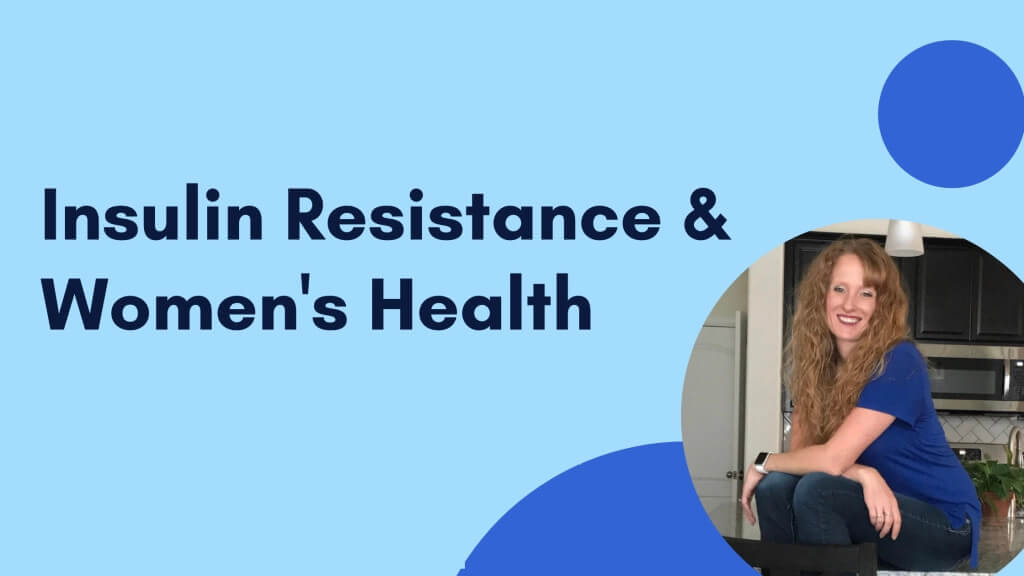
Insulin resistance impacts women’s health
The female body is a complex system. It is constantly in flux, adapting to the demands we place on it and continually changing as life changes. But when something goes wrong metabolically, that complex system can quickly become chaotic, throwing all sorts of things out of whack. And if you’re not treating the underlying cause, your symptoms are likely to get worse over time.
For many women, the root cause of metabolic problems is insulin resistance. Insulin resistance isn’t just about diabetes or something that only affects your waistline: it can have serious consequences for your health and your quality of life. In addition to symptoms like weight gain, fatigue, and increased risk of Type 2 Diabetes, insulin resistance has also been linked to PCOS, infertility, aging skin, and many other disorders.
Achieving a healthy body is more than just about looking good in a swimsuit. When you start to understand the underlying causes of your symptoms and take steps to treat them, you can improve or eliminate these symptoms.
What is insulin resistance?
Insulin resistance is a condition in which the body cannot respond well to insulin. The cells of the body need insulin so that they can take in glucose. When someone is resistant to insulin, their pancreas produces more and more of it until there is a point where it can no longer compensate for the person’s resistance to the insulin. This is marked by both high levels of insulin and reduced response to that insulin.
Insulin resistance is one of the many symptoms of metabolic syndrome. The term “metabolic syndrome” refers to a combination of disorders that include obesity, high blood pressure, and high levels of triglycerides. Although these symptoms are often found together in an individual, they may also show up individually as well.
Insulin resistance is the cause of a number of other common conditions which are also related to lifestyle factors. Conditions that are often caused by insulin resistance include PCOS, type 2 diabetes, obesity, and heart disease, among others.
Insulin resistance is caused and contributed to by a number of factors: genetics, being overweight or obese, and having high-carbohydrate diets with too many refined carbohydrates. The condition can be triggered or worsened by these three factors.
Genetics can play an important role in one’s level of insulin resistance because it’s passed down through the genes from both parents. If one parent has insulin resistance then there is an increased likelihood that their child will as well. Genetics certainly play a role, but lifestyle and dietary habits have by far the biggest impact.
The second factor is being overweight or obese. Obesity has become more and more common over the years, so it comes as no surprise that insulin resistance has grown along with it. People who are overweight are much more also suffer with insulin resistance than people within a healthy weight range. Science is now showing that it is likely the insulin resistance and poor metabolic health that cause the weight gain, rather than the weight gain leading to declining metabolic health. Focusing on improving metabolic health is far more important than body weight.
The third factor is eating too many refined carbohydrates. Eating foods that are high in sugar, especially overconsumption of refined carbohydrates and excessive snacking can contribute to insulin resistance.
A number of lifestyle factors also play a role in the development of insulin resistance. These include sedentary lifestyles, smoking, excessive alcohol consumption, and stress.
A lot of people who have insulin resistance don’t even know it because their levels aren’t high enough for them to experience any symptoms. But if insulin resistance goes untreated, then it can contribute to the development of other diseases and conditions like obesity, heart disease, Type 2 Diabetes, PCOS, Autoimmune conditions, high cholesterol and triglyceride levels, infertility, and rapidly aging skin.
Does this sound like you? Schedule a meet & greet call now to get started on reversing these symptoms for good!
How does insulin resistance affect women’s health in particular?
Insulin resistance can also contribute to the development of menopausal symptoms. Research has shown those with the worst symptoms also have impaired glucose control or insulin resistance.
After menopause, women often gain weight around the midsection, experience greater insulin resistance, and dysregulation of their lipids and cholesterol.
Insulin resistance also contributes to skin changes like acne and wrinkles. High blood sugars contribute to a process called glycation where sugar binds to proteins, fats, and DNA. These form what is referred to as Advanced Glycation End-products (AGEs) which damage the cells throughout the body by increasing inflammation and oxidative stress. Glycation alters the collagen in the skin, weakening the structure and contributing to wrinkles.
High blood sugars cause elevated insulin levels as well as other growth factors like insulin-like growth factor-1 (IGF-1) which increases the oil production in hair follicles which can contribute to acne.
Women can have hope
Insulin resistance is a common condition that can lead to serious health problems. It’s important for you to be aware of the risks and symptoms of insulin resistance. This article has highlighted some of the factors that contribute to developing insulin resistance as well as how it affects women specifically in terms of fertility, skin aging, weight gain around the midsection, impaired glucose control or insulin resistance after menopause, dysregulation of lipids and cholesterol levels (among other things).
The great news is insulin resistance can be reversed or prevented through diet and lifestyle strategies. This is exactly what I focus on with my Nutrition Therapy clients. It’s not about dieting or exercising your life away, but implementing simple to follow natural steps into your life so that you can not only extend your life but do so with vitality!





















0 Comments